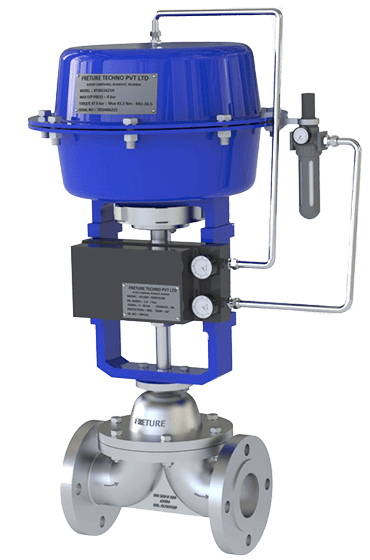The dairy industry demands not only high-quality raw materials but also reliable processing systems that prioritize hygiene, efficiency, and safety. Among the key components of any dairy processing plant are valves, which help manage the flow of milk and other dairy fluids throughout production. The choice of valve types plays a significant role in ensuring smooth operation, preventing contamination, and maintaining product quality.
Different processes require different valve functionalities—from flow regulation to segregation of fluids. This article explores the various types of dairy valves, their typical applications, and the functional benefits they provide in milk processing plants.
1. Butterfly Valves: Simple, Cost-Effective Flow Control
Butterfly valves are one of the most widely used valve types in the dairy industry. Known for their compact design and easy maintenance, these valves are ideal for on/off service and throttling applications in low-pressure lines.
Benefits:
-
Fast operation with quarter-turn actuation
-
Lightweight and space-saving
-
Sanitary design with options for PTFE or EPDM seats
-
Ideal for CIP systems due to ease of cleaning
Applications: Pasteurization units, water lines, cream processing, and low-viscosity liquid handling.
2. Diaphragm Valves: Aseptic and Leak-Proof
Diaphragm valves are specifically designed for hygienic and aseptic applications. They utilize a flexible diaphragm to isolate the fluid from the valve body and mechanism, ensuring a contamination-free environment.
Benefits:
-
Zero dead space for bacteria buildup
-
High resistance to aggressive cleaning chemicals
-
Suitable for SIP (Sterilize-In-Place) systems
-
Smooth flow characteristics
Applications: Yogurt production, whey processing, culture addition systems, and fermentation tanks.
3. Ball Valves: High Shut-Off Integrity
Ball valves are commonly used where tight shut-off is essential. Their design includes a hollow, pivoting ball that controls flow and ensures minimal pressure drop.
Benefits:
-
Full bore design for unrestricted flow
-
Robust and durable construction
-
Easy to automate with pneumatic or electric actuators
-
Minimal maintenance
Applications: Milk transfer, cream separation, and CIP return lines.
4. Mix-Proof Valves: Enhanced Process Safety
Mix-proof valves (also known as double-seat valves) allow the simultaneous flow of two different fluids in close proximity without the risk of cross-contamination. This makes them ideal for fully automated systems.
Benefits:
-
Separation of incompatible fluids
-
Reduced downtime between product changeovers
-
Integrated leakage detection
-
Excellent for high-productivity plants
Applications: Filling lines, product recovery systems, and buffer tanks.
5. Seat Valves: Modular and Versatile
Single-seat and double-seat valves are versatile solutions used for directing, diverting, or shutting off flow. These valves can be customized to fit a range of hygienic operations.
Benefits:
-
Modular construction for flexibility
-
High sealing performance
-
Easy integration into control systems
-
Suitable for viscous and low-viscosity products
Applications: Mixing stations, blending units, and CIP circuits.
6. Check Valves: Preventing Backflow
Check valves allow fluid to flow in one direction only, preventing contamination or backflow that could disrupt processing or cleaning cycles.
Benefits:
-
Protects product integrity
-
Reduces wear on equipment
-
Automatic operation without actuator
-
Available in sanitary designs
Applications: Cream lines, milk delivery systems, and return flows in CIP.
Selecting the Right Valve for Dairy Applications
Choosing the right valve depends on several factors:
-
Product viscosity
-
Cleaning requirements (CIP/SIP)
-
Automation level
-
Flow pressure and temperature
-
Material compatibility (typically stainless steel 316L)
It’s crucial to work with a trusted dairy valve manufacturer that understands the specific requirements of milk processing and offers hygienic designs that comply with 3-A, EHEDG, and FDA standards.
Conclusion
Valves are integral to the safe and efficient operation of dairy processing plants. From basic flow control to advanced separation of fluids, each type of valve contributes to maintaining hygiene, improving productivity, and ensuring the consistent quality of dairy products. Manufacturers that invest in the right valve solutions benefit from reduced downtime, enhanced product safety, and long-term cost savings.
Freture Techno Pvt. Ltd. is a leading Dairy Industry Valves Manufacturer in Mumbai, India.





No comments:
Post a Comment